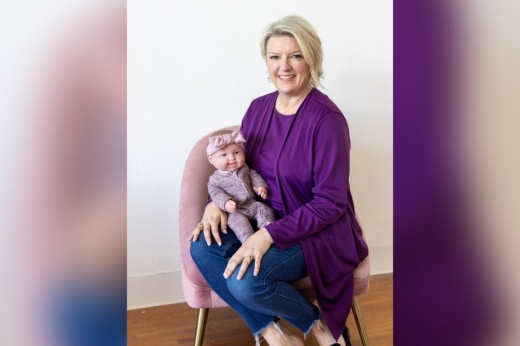“She was a pivotal part of my life,” Moon said. “So watching her journey through Alzheimer's and dementia was especially hard. She had a baby doll that she loved, and after she died, it felt like God planted a seed in me that I would do something with people who had memory loss and therapy dolls.”
At the time, Moon said she wasn’t sure what that journey would look like, but by the time her daughter graduated from high school 17 years later, she had learned a lot about dementia education through hospice care, studying under a neurologist in Europe and Japan and diving into doll therapy, eventually using that knowledge to create the nonprofit.
About the organization
The Grand Baby Project aims to improve the lives of those living with dementia through the innovative use of dementia therapy dolls, which, according to the organization's website, can provide benefits to patients such as increasing social engagement, emotional well-being, cognitive stimulation, behavioral adjustments and a sense of purpose.

“Here in Houston, we had a woman who was in her late 80s and she lived in a senior care community,” she said. “She had lost her ability to verbalize, which is very common as dementia progresses, and her daughter had not heard her voice in over two years. When we gave her [the doll], she began to hum and sing. It was incredible.”
How it works
The dolls are designed to be dementia friendly, Moon said, created from handblown soft silicone and without hair, eyelashes, or noise, but infused with the scent of baby lotion. The dolls can also be personalized for a patient with a variety of demographics to choose from.
Moon said there is also a specific training that goes into giving out the dolls, which includes a virtual training platform, resource materials and an array of activities to perform with the doll.
Dolls can be purchased for individuals or in bulk for senior care communities on the nonprofit's website at: www.thegrandbabyproject.org. A $150 donation is suggested, although not mandatory.





